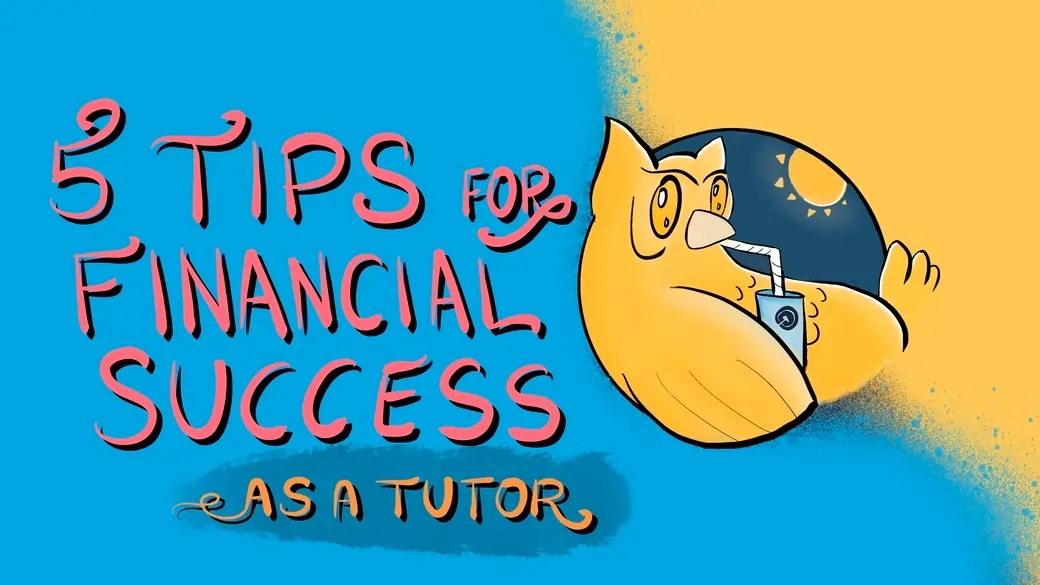Intro
The transition from being employed as a teacher to becoming a self-employed tutor can seem like a scary prospect. As well as having to find your “clients”, there are the financial challenges of unpredictable income, keeping track of income and expenses, and paying tax bills.
However, all these financial issues are really easily handled if you set up properly from day one. This blog post will show you how to set up your finances to make managing your money as a self-employed tutor really simple.
1 Keep business and personal finance separate
Opening a bank account to use only for business transactions is the easiest way to manage your self-employed income. Get all self-employed income paid into this account and pay all business expenses from this account.
Business banking used to be quite costly, but there are some fabulous cost-effective and even free business bank accounts out there. My particular favourite is Starling, which offers business banking and has been named “Best British Bank” 4 years in a row. They offer simple tools within the bank account, which make it really easy to manage your money as a self-employed tutor. I’ll talk a bit more about these tools later in the post.
2 Claim all your expenses
After you have registered as self-employed you will have to keep all your receipts and proof of income, so that you can accurately report your profit at the end of the year. Ensure that you are aware of what expenses you can claim for as a self-employed tutor.
You will be able to claim some of the following tax-deductible expenses.
Stationery
Books and course materials
Website
Phone and internet
Courses and CPD
Advertising costs
Accountants fees
Bank charges for a business bank account
If you have had to purchase items that have an expected life span of 2 or more years., such as a computer or printer, then you should claim capital allowances for these. You can find more information about Capital Allowances on HMRC website.
If you are working from home, then you will be able to claim a percentage of your costs for things like heating, electricity, internet and telephone. Again, you should consult HMRC website for more detailed information.
3 Pay yourself a monthly wage
It’s very tempting to see all the money that comes in as being money available for spending. However, this can be problematic, due to the nature of school terms and the variability of tutoring income.
I find it easier to work out an average salary and pay myself the same salary each month. If you’re starting out as a tutor you might find it easier to pay yourself a smaller salary initially and as the business grows and your income becomes more predictable, you can pay yourself more.
4 Set aside money for tax
Get into the habit each month of setting aside 20% of your income into a separate account so that when the tax bill comes around in January and July you have enough money to pay these tax bills.
You won’t require the full 20% of your income, because you will only be taxed on your profits, rather than your whole income. However, getting into the habit of putting aside 20% of each month’s income means that you can be sure you will have enough to pay your tax bill.
Since I started doing this I don’t stress about my tax bill because I know that I can easily pay it l and I will also have a bit left over to treat myself! It certainly makes paying the tax bill a bit less painful!
Starling bank makes this really simple, by having “spaces” where you can hide money away to save for specific purposes. You can set up as many spaces as you want and can even add goals and photos to them to add to the motivational factor.
5 Start a pension
Moving from teaching to becoming a self-employed tutor means that you’re moving from having a teaching pension paid by you and your employer, to having no pension provision.
It is really important to still consider your retirement prospects, so perhaps consider starting a
personal pension, a Lifetime ISA or investing in stocks and shares ISA which is set aside for your retirement.
By thinking about all of these options you should give yourself a great headstart into creating a viable and profitable business that will allow you track to transition from teacher to self-employed tutor while still keeping a secure financial life
You can find out more by visiting Your Money Sorted where Eileen helps teachers to create a happier, healthier and wealthier life.
